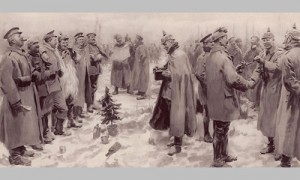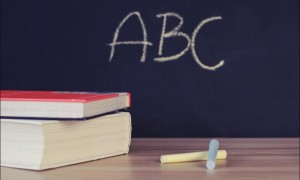写功课 do one’s homework
(X) write one’s homework
上学的时候总是被写不完的作业淹没吗?没想到在英文里,功课竟然不是用写的而是用做的! do one’s homework 就是「写作业」的意思。而「写完作业」则是 finish one’s homework。另外要注意 homework 是不可数名词,因此不论你写了几份作业都不可以加 s。
Mom: Did you do your homework yesterday?
妈妈:你作昨天有写作业吗?
Son: Of course!
儿子:当然有!
Mom: I’ll ask you again, and you’d better think carefully about your answer this time. I just got a call from your teacher.
妈妈:我会再问你一次,然后你最好想清楚再回答我。我刚刚接到一通你们老师的电话。
Son: I’m sorry, mom.
儿子:妈我错了。
Sally: Did you do the homework?
Sally: 你有做功课吗?
Sam: What homework?
Sam: 什么功课?
Sally: Don’t you remember? Pages two to eight of the textbook?
Sally: 你不记得吗?课本第二夜到第八页。
Sam: Shit … If the teacher asks, I’ll just pretend I have amnesia.
Sam: Shit … 如果老师问,我会假装我有失忆症。
Sally: How are you going to pull that off?
Sally: 你要怎么装?
Sam: (Pretending to be confused) Where am I? Who are you?
Sam: (假装很困惑) 我在哪?你是谁?

你有任何问题吗? Do you have any questions/problems?
(X) Do you have any question/problem?
当你看到身边的同学眉头深锁地盯着考卷或课本时,你可以发挥一下同学爱,问对方一句 Do you have any questions? (你有任何问题吗?) 。在疑问句或否定句中,any 后面所带出的名词会是「不可数名词」或「可数名词复数形」。因此当你要问对方「有无任何问题或困难」的时候,用复数形的 questions/problems 才是正确的唷!要注意,虽然 problem 这个字也可以翻成「问题」,但是 problem 是偏向所遇到的「困难」,而 quesiton 则是「疑问」。
Frank: If we stick to the plan, this heist will be perfect. Do you have any questions?
Frank: 如果我们守着这个计画,这一票绝对会很完美。有任何问题吗?
Phil: Just one. How are we going to get around the armed guards?
Phi: 只有一个问题,我们要怎么躲过配有武器的警卫?
Frank: Don’t worry. I have a very clever solution.
Frank: 别担心,我有个聪明的办法。
Phil: What’s that?
Phil: 什么办法?
Frank: Shoot them.
Frank: 射他们。
Phil: Oh. That doesn’t seem very clever.
Phi: 喔,听起来不是很聪明。
Frank: But it is effective. Any other problems?
Frank: 但是很有用啊,还有其他困难吗?
Phil: No.
Phil: 没有。
让我跟你解释 Let me explain this to you.
(X) Let me explain you this.
如果你身边的人遇上难题,而你刚好知道该怎么解决,就可以自告奋勇地说「让我跟你解释」,Let me explain this to you. 。 「向某人解释某事」的固定说法是 explain sth. to sb.,explain 后面要接的是所要解释的事情,而不是人唷!
Hannah: My bicycle has a puncture.
Hannah: 我的脚踏车被刺到了。
Dan: That can be fixed. Let me explain it to you.
Dan: 可以修的,我跟你说明。
Hannah: Thanks a lot.
Hannah: 谢啦。
Dan: Actually it might be easier if I just show you.
Dan: 事实上如果我直接弄给你看会比较简单。
Hannah: Okay.
Hannah: 好的。
Dan: But I’m only going to do it once, because I won’t be there to help you next time. So pay attention.
Dan: 但是我只会做一次,因为下次没有人可以帮你,所以注意看。
加油 Break a leg! / Keep up the good work!
(X) Add oil!
当你的同学或朋友们即将参加一场比赛、考试,或是念书念的筋疲力竭的时候,你可以大声地跟他说一句 Break a leg! 或是 Keep up the good work!,这两句都是「加油!」的意思。 break a leg 最开始是在剧院里以反讽的方式祝表演者好运的说法,现在也常常被用在日常生活中鼓励别人。 keep up the good work 则有「做得很好,继续保持」的意味。
(Jerry, a boxer, and George, his trainer, talking before the start of a fight)
(Jerry 是位拳击手,而 George 是他的教练,两位在赛前谈话)
George: Okay, good luck out there in the ring.
George: 好,比赛顺利。
Jerry: Do you really think I can beat him?
Jerry: 你真的认为我可以击败他?
George: Well … he’s knocked out every one of his previous opponents. But I believe in you. Just go out there and break a leg–not literally of course.
George: 这个嘛…前面的对手都被他击败了,但我相信你,就上去 break a leg,当然不是指针的断腿啦。
Jerry: I’m not so sure if this is such a good idea …
Jerry: 我不确定这是不是个好主意…
George: You’ll be fine! Just stay positive!
George: 你会没事的!保持乐观!
(Bell rings, Jerry begins getting pummeled by his opponent)
(铃声响起,Jerry 开始被对手连续痛殴)
George: Go get him Jerry! Keep up the good work!
George: 快打他啊 Jerry!干得好!
_____怎么拼? How do you spell _____?
(X) How to spell _____?
有时候我们听到一个新单字,但是实在不确定那个字的拼法,就会忍不住问一句 How to spell…? 来表示「…怎么拼?」虽然这句话在文法上并没有错误,但并不是母语者惯用的说法。比较自然的说法为 How do you spell…?。
Paul: Where did you say you were from again?
Paul: 你说你从哪里来的?
Sol: Milngavie
Sol: 沐盖。
Paul: I’ve never heard of it. How do you spell it?
Paul: 我从来没听过,怎么拼呢?
Sol: M-i-l-n-g-a-v-i-e.
Sol: M-i-l-n-g-a-v-i-e。
Paul: Well that doesn’t make any sense.
Paul: 没道理呀。
Sol: I know, right? You’d think they’d spell it “m-u-l-g-a-i” or something.
Sol: 我知道,你会以为应该是拼成 m-u-l-g-a-i 之类的。
查字典 take a look in the dictionary / look up _____ in the dictionary / look _____ up in the dictionary
(X) search the dictionary
在知道一个单字该怎么拼之后,你就可以拿起字典查一查这个字的解释、用法、词性等等。查字典的英文是 take a look in the dictionary 或是 look up a word in the dictionary。 take a look 有「看一下」的意思;而 look up 则有「查阅」的意思,后面要接想查阅的目标。千万别说成 search the dictionary!
Read this article at home. If there’s a new word, try to guess the meaning according to the context before you look it up in the dictionary.
回家读一下这篇文章。如果有新的单字,先根据上下文猜猜它的意思,再去查字典。
Pauline: How do you spell “onomatopoeia?”
Pauline: onomatopoeia 这个字怎么拼?
Howard: Spell what?
Howard: 什么怎么拼?
Pauline: Onomatopoeia–you know, a word that imitates or resembles a sound.
Pauline: onomatopoeia,你知道,就是拟声的那个字。
Howard: Oh, like “cuckoo” or “oink”.
Howard: 喔,像是 cuckoo 或 oink。
Pauline: Yeah.
Pauline: 对。
Howard: I dunno. Look it up in the dictionary.
Howard: 不知耶,查字典吧。
参加考试 take an exam
(X) join an exam
学生们最大的噩梦就是参加考试啦!虽然中文我们说「参加」,但是在英文却不能用 join 这个动词,而是要用 take !
另外补充 exam 通常是指比较大的考试,像是期中考、期末考。 test 则是比较小型的测验,比方说上完一个章节后的复习考。 quiz 则是更小型的测验,比方说英文课上抽背几个单字,或是临时的随堂小考 (pop quiz)。
Our professor gave us two options.Either we take the final exam or hand in a 5,000-word paper.
我们的教授给了我们两个选择。要么考期末考,要么交一份 5,000 字的报告。
Greg: I was supposed to take my psychology exam this morning–but I slept in!
Greg: 我今天早上应该要去考心理学考试的,但我睡过头!
Olive: Oh no. What are you going to do?
Olive: 喔不,怎么办?
Greg: My professor told me I can sit the exam again in the summer.
Greg: 我的教授要我暑假再补考。
Olive: That’s not too bad then. What was the exam on?
Olive: 还不错啊,是考什么?
Greg: Sleep disorders.
Greg: 睡眠障碍。
Olive: How ironic.
Olive: 还真讽刺。
以上这些是不是非常实用呢?虽然有些用语跟中文的感觉不太一样,不过多练习几次就会习惯啦! Keep up the good work! 加油!







